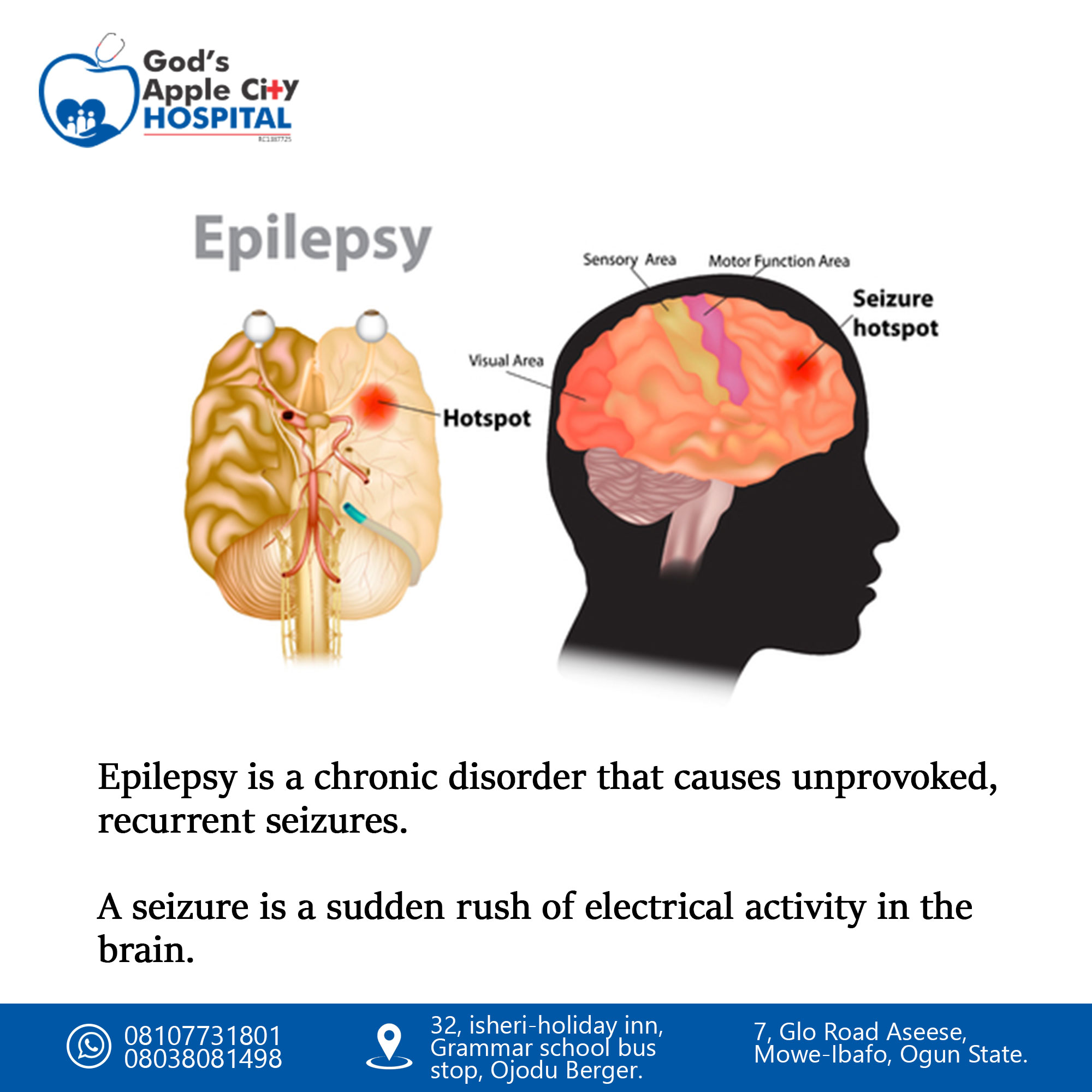What is epilepsy?
Epilepsy is a chronic disorder that causes unprovoked, recurrent seizures.
A seizure is a sudden rush of electrical activity in the brain.
There are several reasons you might have a seizure. These include:
- high fever
- head trauma
- very low blood sugar
- alcohol withdrawal
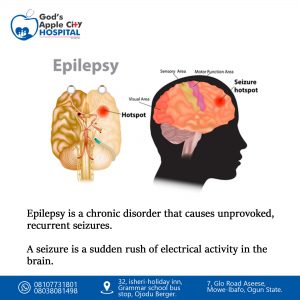
What causes Epilepsy
A variety of things can lead to seizures.
Possible causes include:
- traumatic brain injury
- scarring on the brain after a brain injury (post-traumatic epilepsy)
- serious illness or very high fever
- stroke, which is a leading cause of epilepsy in people over age 35
- other vascular diseases
- lack of oxygen to the brain
- brain tumor or cyst
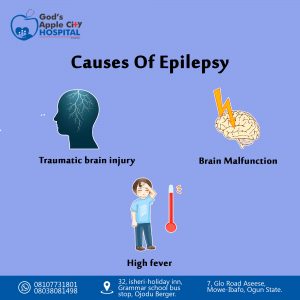
Seizures are the main symptom of epilepsy. Symptoms differ from person to person and according to the type of seizure.
Focal (partial) seizures
A simple partial seizure doesn’t involve loss of consciousness. Symptoms include:
- alterations to sense of taste, smell, sight, hearing, or touch
- dizziness
- tingling and twitching of limbs
Complex partial seizures involve loss of awareness
s or consciousness. Other symptoms include:
- staring blankly
- unresponsiveness
- performing repetitive movements
Generalized seizures
Generalized seizures involve the whole brain. There are six types:
Absence seizures, which used to be called “petit mal seizures,” cause a blank stare. This type of seizure may also cause repetitive movements like lip smacking or blinking. There’s also usually a short loss of awareness.
Tonic seizures cause muscle stiffness.
Atonic seizures lead to loss of muscle control an
d can make you fall down suddenly.
Clonic seizures are characterized by repeated, jerky muscle movements of the face, neck, and arms.
Myoclonic seizures cause spontaneous quick twitching of the arms and legs.
Tonic-clonic seizures used to be called “grand mal seizures.” Symptoms include:
- stiffening of the body
- shaking
- loss of bladder or bowel control
- biting of the tongue
- loss of consciousness
Following a seizure, you may not remember having one, or you might feel slightly ill for a few hours.
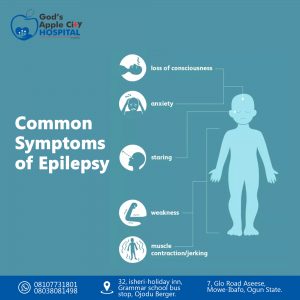
What triggers Epileptic seizure
Some people are able to identify things or situations that can trigger seizures.
A few of the most commonly reported triggers are:
- lack of sleep
- illness or fever
- stress
- bright lights, flashing lights, or patterns
- caffeine, alcohol, medicines, or drugs
- skipping meals, overeating, or specific food ingredients
Identifying triggers isn’t always easy. A single incident doesn’t always mean something is a trigger. It’s often a combination of factors that trigger a seizure.
A good way to find your triggers is to keep a seizure journal. After each seizure, note the following:
- day and time
- what activity you were involved in
- what was happening around you
- unusual sights, smells, or sounds
- unusual stressors
- what you were eating or how long it had been since you’d eaten
- your level of fatigue and how well you slept the night before
Treatment for Epilepsy
- Anti-epileptic (anticonvulsant, antiseizure) drugs: These medications can reduce the number of seizures you have. In some people, they eliminate seizures. To be effective, the medication must be taken exactly as prescribed.
- Vagus nerve stimulator: This device is surgically placed under the skin on the chest and electrically stimulates the nerve that runs through your neck. This can help prevent seizures.
- Ketogenic diet: More than half of people who don’t respond to medication benefit from this high fat, low carbohydrate diet.
- Brain surgery: The area of the brain that causes seizure activity can be removed or altered.
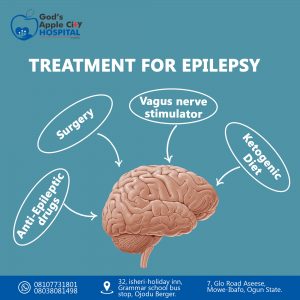
https://web.facebook.com/Godsapplecity
read other blogs https://godsapplecityhospital.com/breast-cancer-signs-and-detection/

